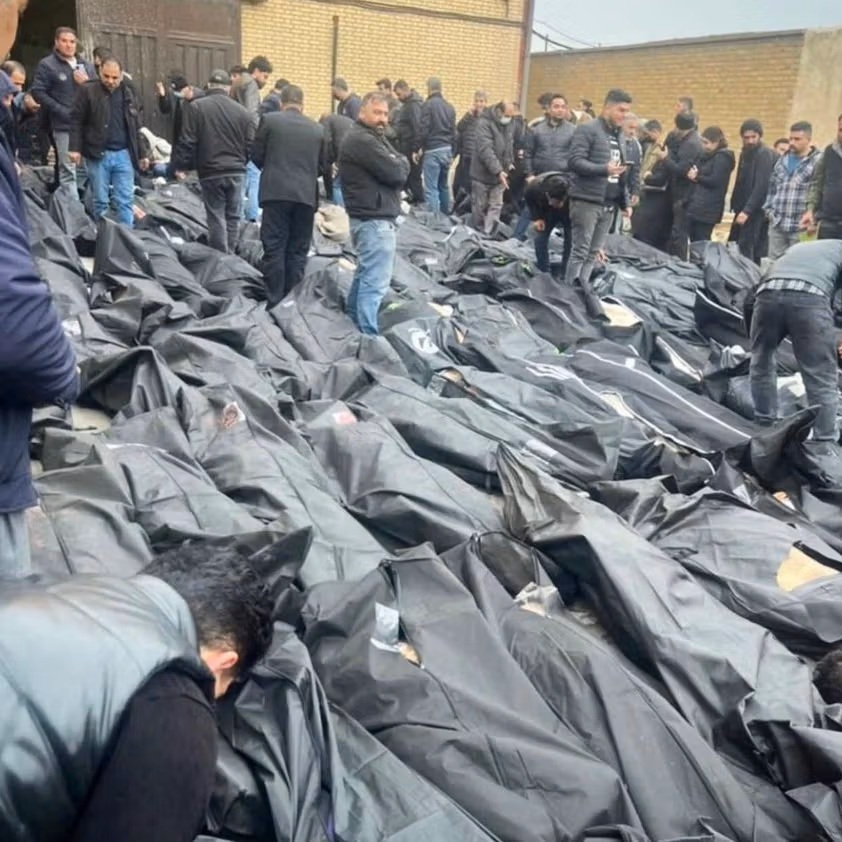
The South Caucasus is emerging as a critical subsystem in the evolving architecture of Eurasian geopolitics, where local incidents increasingly function as conduits for broader strategic readjustments. As the geopolitical balance in the region undergoes a visible reordering, Russia and Iran are separately escalating their respective diplomatic offensives against Azerbaijan.
By Robert M. Cutler
This intensification reflects not merely bilateral tension but a more profound re-evaluation of strategic assumptions in Moscow and Tehran. In both capitals, Azerbaijan is no longer viewed as a manageable actor within inherited post-Soviet frameworks. Instead, it is a node of autonomous agency whose shifting posture complicates traditional patterns of influence.
Baku’s strategic diversification across energy corridors and security partnerships has eroded the informal monopoly over regional narrative framing and security orientation once enjoyed by its larger neighbours, which increasingly prompts their public attempts at containment, discreditation, and disruption. This is the context within which current events must be placed: they are not transient frictions, but rather symptoms of a shifting gravitational centre in a historically contested strategic zone.
At stake is not only regional alignment but the future shape of influence projection in the South Caucasus as a whole. With Western powers preoccupied elsewhere, and given Türkiye's selective assertiveness, the vacuum of stable hegemonic management has created space for smaller actors to practise more agile statecraft. As Azerbaijan has been able to leverage its geographic position and infrastructural connectivity, it seeks to recast itself not merely as a reactive buffer state but as a formative regional driver.
Russian Raids Against Azerbaijani Citizens and Azerbaijan's Response
On 28 June 2025, Russian security services launched a coordinated series of raids across Yekaterinburg (Russia), ostensibly targeting what federal authorities described as an “ethnic criminal group” linked to unresolved homicides dating back to the early 2000s. The operation resulted in the deaths of two ethnic Azerbaijanis—brothers Ziyaddin and Huseyn Safarov—and several others were seriously injured. Roughly 50 individuals were taken into custody.
Under mounting public scrutiny, the Investigative Committee belatedly acknowledged the deaths, attributing one to heart failure while stating that the other remained under investigation. Family members of the deceased have alleged that both men were subjected to torture. Azerbaijani officials have publicly condemned the operation as demonstrative, targeted, and extrajudicial killings carried out on ethnic grounds.
In the wake of the Yekaterinburg killings, Azerbaijan announced the suspension of all Russian cultural programming, including concerts, exhibitions, and festivals. Baku’s foreign ministry summoned Russia’s chargé d’affaires to formally demand a comprehensive investigation and legal accountability for those responsible. The Azerbaijani parliament withdrew from a bilateral assembly scheduled to convene in Moscow, while a planned visit to Baku by Russian Deputy Prime Minister Alexei Overchuk was abruptly cancelled.
Azerbaijani authorities also raided the Baku office of Sputnik Azerbaijan, the local branch of Russia’s state-run media agency, detaining several employees. Sputnik’s accreditation had been suspended in February 2025, and the Interior Ministry later stated that the action stemmed from an investigation into “illegal financing”. In retaliation, Moscow summoned Azerbaijan’s ambassador to condemn what it described as “unfriendly actions” and to denounce the detentions.
Iranian Accusations against Azerbaijan and Azerbaijan's Response
In late June 2025, Iran publicly accused Azerbaijan of having permitted Israeli drones to carry out attacks on Iranian territory from Azerbaijani soil during the recent conflict between Iran and Israel. Iranian intelligence claimed to possess information indicating that a small number of Israeli drones had entered Iran via neighbouring countries, with particular emphasis on Azerbaijan.
President Masoud Pezeshkian personally raised the matter in a telephone call with President Ilham Aliyev, urging a full investigation. Iranian officials underscored that Tehran’s response would be contingent upon the outcome of that investigation. Azerbaijan’s government categorically rejected the allegations, describing them as “baseless and provocative”. The Azerbaijani Foreign Ministry stated that its territory and airspace had not been, and would not be, used by any state—including Israel—for military operations against Iran or any other country.
During his conversation with President Pezeshkian, President Aliyev reaffirmed Azerbaijan’s respect for Iran’s sovereignty and territorial integrity, and insisted that Baku retained complete control over its airspace and would never permit it to be used for attacks against Iran. Azerbaijan also criticised Iran’s Ambassador to Armenia for remarks that, in Baku’s view, reflect a “pro-Armenian position” and are detrimental to bilateral ties.
The Iranian allegations and Azerbaijan’s firm denials have further strained an already complex bilateral relationship. The dispute is fuelled by broader geopolitical rivalry, Azerbaijan’s strategic cooperation with Israel, and the presence of tens of millions of ethnic Azerbaijanis in northwest Iran near the shared border. As both sides remain entrenched in a rhetorical standoff, the risk of further escalation persists should new evidence or incidents come to light.
Converging Pressures and Strategic Consolidation
Although different strategic imperatives shape the Russian and Iranian démarches, their convergence reveals a shared disquiet at Azerbaijan’s increasingly autonomous role in the regional order. There is a discernible parallelism in their conduct.
Each state, acting unilaterally, has selected a moment to exert pressure that exposes its diminishing ability to secure adherence to what it regards as acceptable. In Moscow’s case, extrajudicial policing unsettles Azerbaijani domestic confidence in the security of its diaspora and may be construed as a warning against perceived realignments.
Tehran, for its part, seeking to redefine the bounds of what it regards as permissible through inference rather than formal confrontation, deploys the language of national sovereignty to externalise its concern over Baku’s deepening ties with Israel.
Despite their differing registers—physical coercion versus discursive accusation—both moves appear designed to constrain Azerbaijan’s diplomatic agility through calculated ambiguity. Neither Russia nor Iran has opted for formal escalation, but each has adopted methods that inhabit a threshold space between diplomacy and deterrence. This permits them to signal disapproval while preserving plausible deniability. In doing so, however, they tacitly acknowledge the limits of their reach.
These tactics expose a strategic lag between perception and reality. The resulting asymmetry of intention and actual effect, the product of a presumption of pliability that no longer reliably exists, renders their initiatives less coercive than revelatory.
What becomes evident is that Azerbaijan no longer orbits their gravitational centres, and the application of pressure serves only to reinforce its centrifugal trajectory. The actions of Moscow and Tehran, far from reversing Baku’s outward posture, instead clarify its direction of travel.
Confronted by simultaneous yet uncoordinated attempts to limit its autonomy, Azerbaijan is consolidating its stance rather than deepening its deference. The result is its further crystallisation of its assertive regional role, defined by strategic volition and not by constraint.
Systemic Realignment and the South Caucasus
The fallout from Russian police raids targeting Azerbaijani citizens in Yekaterinburg, together with Iran’s accusations that Baku is facilitating Israeli drone incursions, illustrates how local flashpoints are becoming increasingly entangled with the strategic ambitions and anxieties of external powers. With Azerbaijan holding firm against mounting pressures from both Russia and Iran, the region’s tentative equilibrium is now under considerable strain, as historical hegemons incrementally lose their anchorage.
These developments are not isolated aberrations but symptoms of a broader structural transition. That transition is marked by the erosion of post-Soviet stabilisation norms, intensifying intra-regional competition, and the emergence of transactional diplomacy within increasingly contested spheres of influence. The result is a zone of heightened volatility. The strategic environment is becoming defined less by fixed alignments than by shifting gradients of influence.
Whether present tensions crystallise into durable cleavages or yield emergent patterns of pragmatic coordination will depend on the capacity of regional actors to adapt to a geopolitical field that is structured no longer by stable polarities, but by evolving realignments. These realignments are themselves being shaped by the resilience of external partnerships, the salience of domestic legitimacy, and the effectiveness of transnational conduits.
In this context, current crises should not be interpreted as episodic disturbances, but seen rather as manifestations of an accelerating systemic transformation, the trajectory of which, while still unforeseeable, now appears difficult to arrest.






